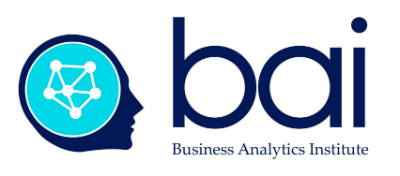
Michel Foucault once argued that the only viable yardstick for measuring technology was whether or not it contributed to human potential. The near future of Health Analytics may provide substantive proof of this vision. By 2020, roughly 25,000 petabytes of patient data will be available to the industry.[i] KPMG’s recent survey of healthcare professionals reveals that fifty-six percent of the participants surveyed believe that this data will largely contribute to our practice of business intelligence, while 35 percent cite lowering healthcare costs, and 32 percent suggest improved health outcomes.[ii] As healthcare organizations invest heavily in technology and analytics to take advantage of these opportunities, what are the opportunities for aspiring data scientists?
Health Analytics involves deriving insights from patterns and correlations in the data that can fuel better decision making in the Health and Life Sciences. According to the recent study on “Healthcare Analytics” by Research and Markets, this market is expected to reach USD 24.55 Billion by 2021 from USD 7.39 Billion in 2016, which represents a CAGR of 27.1%.[iii] This exceptional market growth is driven by factors including a multiplication of government initiatives to enhance the adoption of electronic health records, rising pressure to curb healthcare spending, the perceived need to improve patient outcomes, the increase of venture capital investments in the industry, and advancements in analytics and big data technologies.
As is often the case, there are multiple opportunities here for data scientists to leverage descriptive, predictive, and prescriptive analytics. The boom of the Quantified Self movement is fueling one segment of the market. Constant streams of Little Data on individuals physical and mental states from a multitude of connected devices capture the quality of our mindfulness, exercise, and diet. The proponents of the Quantified Self claim that this data can potentially improve the quality of our sleep, the way work, and the way we play. Applications of Little Data, like those of Asthmapolis, Quadio, and Zepher are particularly promising both for populations who face specific health challenges (allergies, asthma, heart conditions, etc.), as well as athletes looking for a competitive edge. This focus on preventive medicine will pay dividends not only for the industry and the government, but the population as a whole.
In an increasingly competitive healthcare market, eighty-nine percent of industrial executives interviewed by Accenture believe that implementing big data analytics will be the key to maintaining market share.[iv] Partnerships between the medical providers and the pharmaceutical profession, like DataSphere, HealthConnect, and PPC/HealthCore, have provided frameworks for the future of Health Analytics. European and national initiatives, including the Directive 2011/24/EU and the national health card scheme in France are already providing tremendous amounts of data on industry costs, practices across demographics. Local attempts to pool resources in the form of “groupements médicaux territoriaux” have allowed local practitioners to share resources, knowledge and best practices.
Aspiring data scientists would do well to learn more about the field and its opportunities. The Business Analytics Institute’s 2018 Summer School will help you explore the evolution of the industrial landscape to understand what the current challenges and opportunities abound. We will examine what sources of Little and Big Data are available today. We will review the appropriate methodologies of data science and how they can apply to this field. Finally, we will explore how private and public organizations are transforming this data into action to improve our physical and mental well-being for generations to come.
In our summer session in Bayonne, as well as in our Master Classes in Europe, we put analytics to work for you and for your organization. The Institute focuses on five applications of data science for managers: digital economics, data-driven decision making, machine learning, community management, and visual communications. Improving managerial decision making can make difference in your future work and career.
____________
Lee Schlenker is a Professor at ESC Pau, and a Principal in the Business Analytics Institute http://baieurope.com. His LinkedIn profile can be viewed at www.linkedin.com/in/leeschlenker. You can follow us on Twitter at https://twitter.com/DSign4Analytics
[i] Dhamdhere, et. al., (2016), Big Data for Health Care
[ii] Walker, T., (2015), Just 10% of healthcare organizations using data, analytics, Managed Health Care Executive
[iii] Markets and Markets (2016), Healthcare Analytics/ Medical Analytics Market by Application
[iv] Bresnick, J.,(2014), 89% of Execs Say Big Data Analytics is Key to Market Share, HealthIT Analytics

